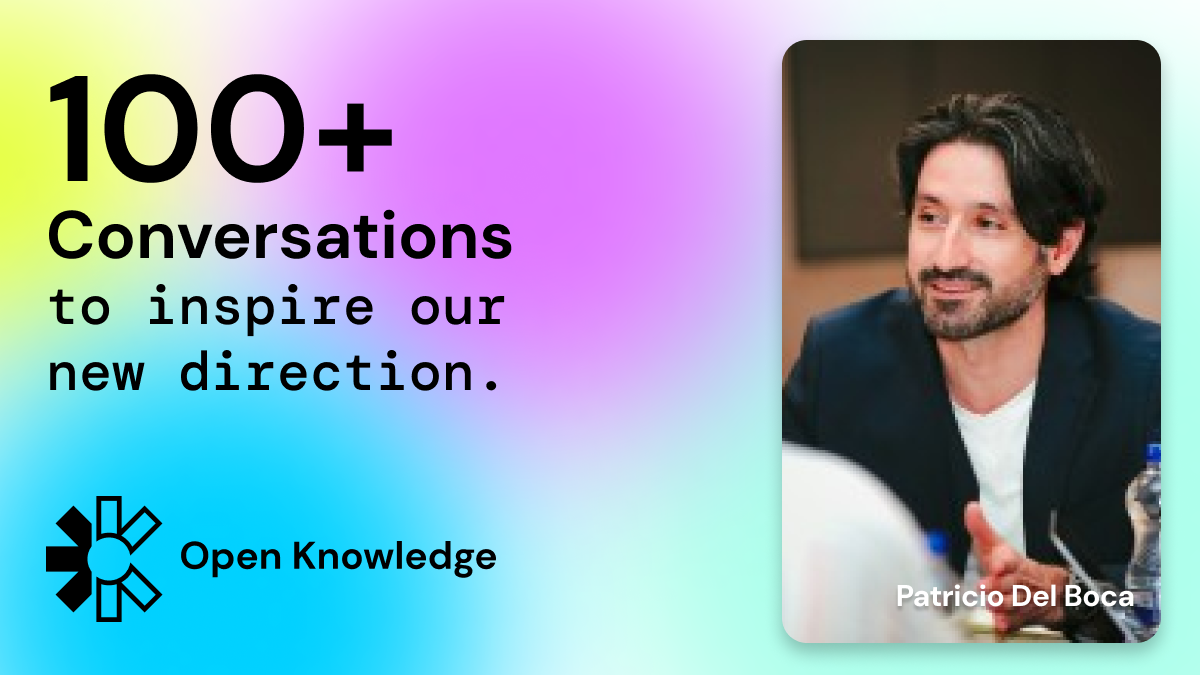Patricio Del Boca: ‘What we need is concrete tech for the people who need it, and nothing else’

Reimagining Technology: A Conversation with Patricio Del Boca
The Problem with Big Tech's Software
Today's software landscape is dominated by tools built by tech giants to handle their massive scale. Think Google indexing the entire internet, or Facebook managing millions of daily posts. These tools, while open-source, have inadvertently created a culture of over-engineering.
Patricio Del Boca, Open Knowledge Foundation's Technological Lead, argues that most organizations don't face these "billion-user" challenges, yet they adopt the same complex tools. This leads to unsustainable development practices, akin to using a heavy-duty SUV for a quick trip to the grocery store.
"95% of companies don't have the same problems as Facebook... so why should they use the same tools?" Del Boca asks. This over-reliance on complex solutions drives up costs and distracts from simpler, more effective approaches.
Combating Over-Engineering: A Multi-Pronged Approach
Addressing this over-engineering requires a multifaceted strategy. Del Boca suggests government regulation to curb practices like vendor lock-in, alongside a cultural shift within the tech community towards simpler, more sustainable tools.
He highlights projects like HTMX, a lightweight library extending HTML functionality, and Ruby on Rails, which empowers developers to build entire products efficiently. These represent a return to the basics, focusing on core web technologies rather than bloated frameworks.
Del Boca also emphasizes the potential of modern hardware. With devices like the Raspberry Pi boasting impressive processing power, local solutions can often replace expensive cloud-based infrastructure.
The Case for Open Source
While many organizations still hesitate to embrace open source solutions, Del Boca argues that the landscape is changing. With the world's digital infrastructure largely built on open source foundations like Linux and Android, the robustness and reliability of these technologies are increasingly evident.
He challenges the notion of "security by secrecy," pointing out that open code allows for greater scrutiny and faster identification and resolution of vulnerabilities.
Furthermore, open source breaks the chains of vendor lock-in, fostering greater control, transparency, and cost-effectiveness.
Public Digital Infrastructure: The Importance of Openness
The concept of public digital infrastructure (DPI) is gaining traction globally. Del Boca believes that all DPI should be open, ensuring public access, transparency in procurement, and fostering a vibrant ecosystem of innovation.
Open DPI promotes collaboration, reduces costs through reusability, and builds communities around shared solutions. "If the digital infrastructure is public," Del Boca asserts, "then everyone should have the right to see it, understand it, update it, use it, and check it."
Scaling Community-Based Solutions
Del Boca champions the scaling of open, community-based solutions, not through centralized technologies, but through the reuse of interoperable components. He sees the Open Knowledge Network as a key driver in this effort, facilitating collaboration and knowledge sharing across diverse communities.
By building modular and interoperable infrastructure, communities can adapt and tailor solutions to their specific needs, while benefiting from shared learnings and advancements.
The Open Data Editor: Leading by Example
The Open Knowledge Foundation's Open Data Editor (ODE) embodies the principles of "The Tech We Want." Designed to empower non-coders to work with data effectively, ODE prioritizes simplicity, offline functionality, and local processing for enhanced privacy.
The project is actively engaging with pilot organizations, demonstrating the practical impact of accessible, user-friendly tools for data management and analysis.
The Technologies We Need
Ultimately, Del Boca envisions technologies that are accessible, affordable, and sustainable, driven by real needs rather than the inflated demands of Big Tech. These technologies should empower communities and individuals, fostering a more equitable and democratic digital future.
"We need concrete technologies for people who need them, based on real needs, not on oversized problems. Nothing else."